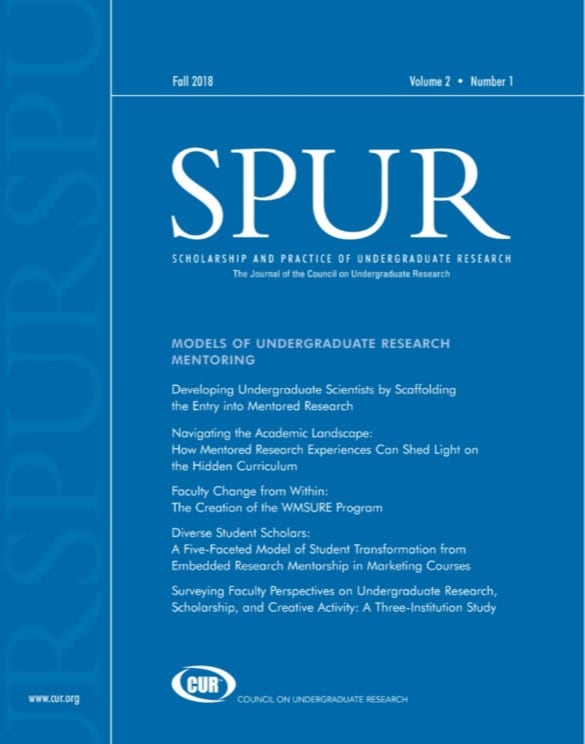SPUR (2018) 2 (1): https://doi.org/110.18833/spur/2/1/6
Underrepresented students have less knowledge of research experiences available on campus and are less likely to feel supported by faculty than represented students. To address these issues and increase the number of underrepresented undergraduate researchers, faculty at the College of William & Mary created the William & Mary Scholars Undergraduate Research Experience (WMSURE). Community-based and participatory research methods were used to work with students in developing research questions and in collecting and analyzing quantitative and qualitative data about their academic and personal experiences. This led to the development of academic and research advising services, workshops, faculty education, and research funding to support underrepresented students. This article evaluates the program. Results suggest that the WMSURE program has increased research opportunities and feelings of support on campus.
More Articles in this Issue
- Assessment‐ Janet A. Morrison, Nancy J. Berner, Jill M. Manske, Rebecca M. Jones, Shannon N. Davis, and Pamela W. Garner
SPUR (2018) 2 (1): https://doi.org/10.18833/spur/2/1/1 Abstract:The authors surveyed faculty (n = 239) at three diverse institutions to probe perceived motivations for and barriers to involvement in undergraduate research, scholarship, and creative activity (URSCA) across scholarly disciplines. URSCA mentors were significantly more likely than nonparticipants to express proficiency in involving students in their research/creative activities, to acknowledge student contributions to their scholarly work, and to state that URSCA mentoring should be considered in personnel decisions. More than half perceived that their institutions did not place sufficient value on mentoring URSCA. Results suggested that institutional URSCA cultures could be enhanced by building mentoring into faculty workload, tenure materials, and promotion documents; using early, course-based research to improve student readiness; providing faculty development on research mentoring aimed at underrepresented disciplines; and seeking novel funding sources targeted at faculty-mentored URSCA.
- Assessment‐ Farron McIntee, Kendra R. Evans, Jeanne M. Andreoli, Abigail J. Fusaro, Melanie Hwalek, Ambika Mathur, and Andrew L. Feig
SPUR (2018) 2 (1): https://doi.org/10.18833/spur/2/1/5 Abstract:For many college students, joining a research group is a critical step toward developing strong mentor-mentee relationships that help shape their science identities and research self-efficacy. ReBUILDetroit, a program that seeks to diversify the biomedical research workforce, uses a scaffolded process to help its scholars transition into research. The first-year curriculum includes a research methods course and a course-based undergraduate research experience that prepare ReBUILDetroit Scholars for entering a research group. Curricular and cocurricular elements prepare scholars for faculty interactions and diminish barriers that might otherwise prevent diverse students from obtaining these research experiences. The program facilitates research placements through student coaching and speed-pairing events. Quantitative and qualitative data on the scholars show strong perceived gains in science identity, enhanced research self-efficacy, and greater research preparedness.
- ‐ Laurie Gould, Issue Editor
SPUR (2018) 2 (1): https://doi.org/10.18833/spur/2/1/10


